How This Corrupt Texas Police Chief Used His Band, Funky Munky, To Pocket Bribes
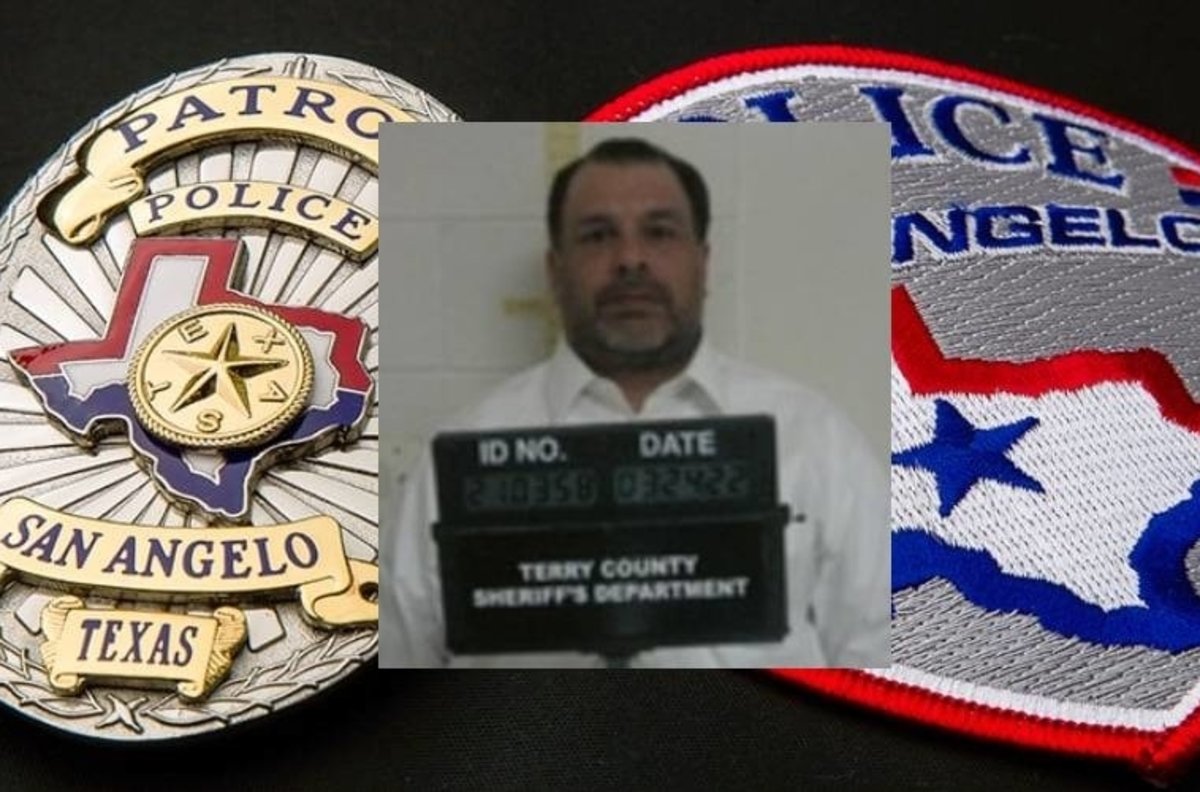
A federal jury in Texas found ex-San Angelo Police Chief Timothy Ray Vasquez, 52, guilty of taking bribes to land a police radio system contract. Terry County Jail photo. Composite by Coffee or Die Magazine.
After a three-day trial, a federal jury has convicted a corrupt Texas police chief who used his band, Funky Munky, to funnel bribes from a city vendor.
It took seven hours of deliberation Thursday, March 24, for jurors to find ex-San Angelo Police Chief Timothy Ray Vasquez, 52, guilty of one count of receipt of a bribe by an agent of an organization receiving federal funds and three counts of honest services mail fraud.
Vasquez was elected chief in 2004 and then reelected in 2008 and 2012. He was indicted in early 2020.
US District Judge James Wesley Hendrix has yet to slate a sentencing date. Vasquez was remanded to the custody of the US Marshals Thursday without bail and faces up to 70 years behind bars.
Terry County Jail records reveal Vasquez was booked into the Brownfield lockup at 4:59 p.m. Thursday.
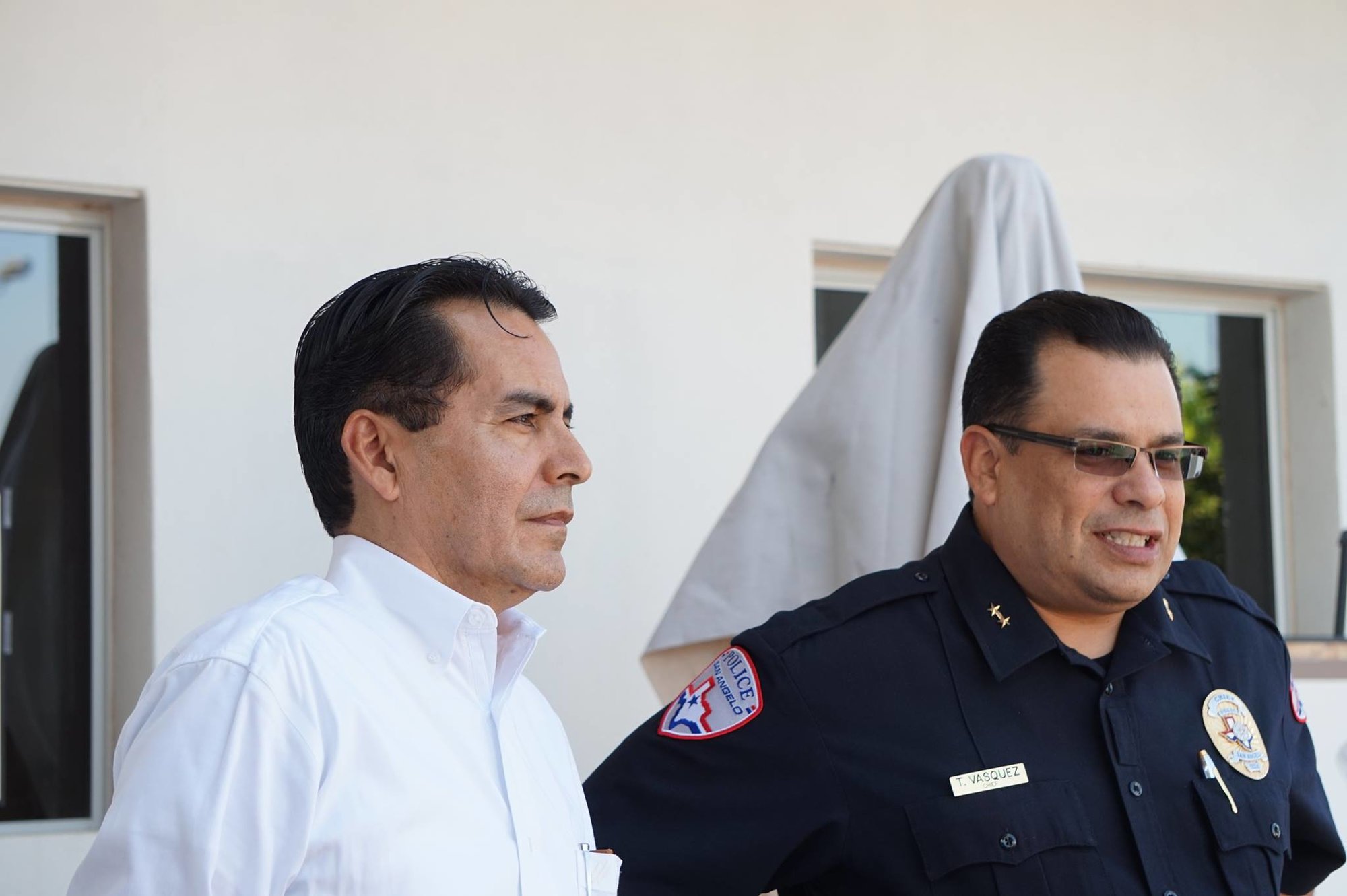
“Law enforcement officers, particularly those in leadership positions, should be bastions of integrity. By accepting bribes, Mr. Vasquez defiled his badge,” US Attorney Chad Meacham said in a prepared statement released in the wake of the verdict. “The Justice Department is determined to root out public corruption wherever we find it. Our citizens deserve honest public servants.”
Vasquez’s criminal defense attorney didn’t respond to messages from Coffee or Die Magazine seeking comment.
Vasquez’s corrupt acts began shortly after the City of San Angelo — located roughly 200 miles northwest of San Antonio — put out a request for bids on a new radio system for its emergency personnel, federal prosecutors said. Within weeks, the city had received three competitive bids, and on April 5, 2007, the vendors made presentations to officials.
Vasquez was on a committee that recommended the city enter a nearly $5.7 million contract with Dailey & Wells, and the bid was accepted.
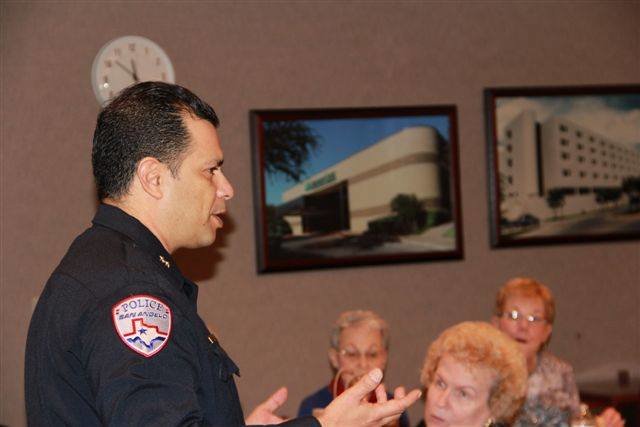
On July 13, 2007, Juniper Valley LP, an affiliate of Dailey & Wells, cut a $10,000 check to the “Funky Munky Band,” a group Vasquez founded and owned. He deposited the check in his bank account four days later.
It was a lucrative gig for Funky Munky. According to federal records, the group typically earned between $1,000 and $3,000 for playing an event.
City officials inked a communication-system agreement with Dailey & Wells on Sept. 18, 2007. Two months later, Juniper Valley gave Vasquez’s Funky Munky band another $8,000. He deposited $4,000 in his bank account and pocketed the rest in cash.
Checks from $8,000 to $10,000 made out to Funky Munky became annual expenses for Juniper Valley and other affiliated firms, such as Trixie & Fini and Buddy & Buddy, through 2014, according to federal court records.
Then Vasquez began urging city leaders to upgrade the radio system to a different Dailey & Wells product. Because it was an update to an existing system and it could garner a public safety exemption, the chief decided the new $5.7 million deal didn’t need to go to bid. On June 2, 2015, the city inked a second agreement with Dailey & Wells.
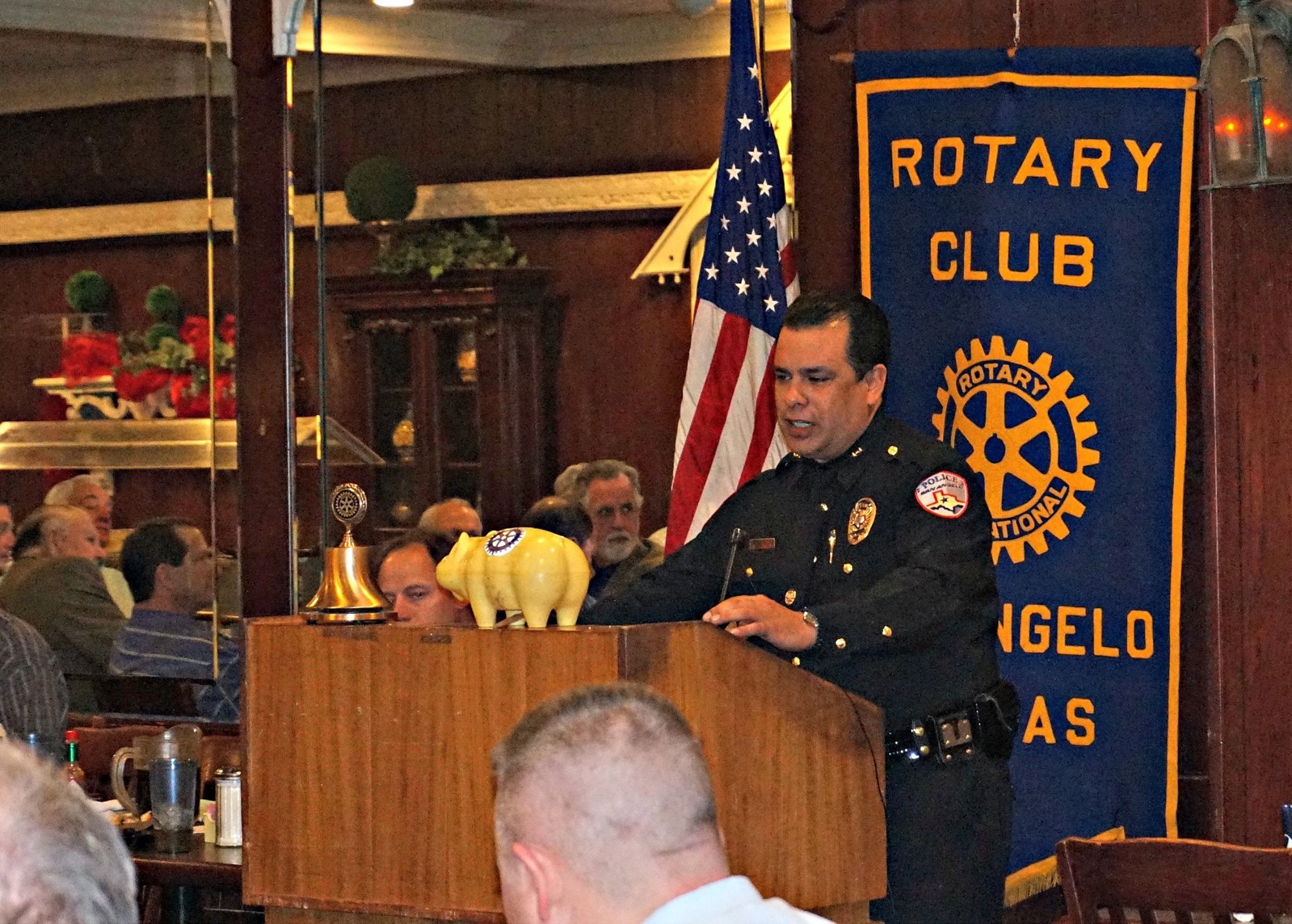
Six months later, Trixie & Fini paid Funky Munky $8,000 to play a Christmas party. And then, on Dec. 7, 2016, Dailey & Wells wrote a $50,000 check to Funky Munky, putting Vasquez’s name in the memo section.
Federal investigators estimated that, between 2007 and 2016, Funky Munky became a conduit for $175,000 in bribes and kickbacks from Dailey & Wells and its affiliates to Vasquez.
The companies also feted Vasquez in luxury boxes at Dallas Cowboys and San Antonio Spurs games, gave him luxury suite tickets for a Journey concert, and opened for his use luxury accommodations at Alteza Condos of San Antonio.
Vasquez neither told city officials about his off-duty arrangements with the vendors nor alerted elected council members about the money flowing into Funky Munky’s coffers.
During his trial, six members of San Angelo’s city council from during those contract negotiations testified that Vasquez had held considerable sway over them as the trusted police chief. Five testified that, if they’d known about a business relationship between Vasquez and the contractor, they would’ve voted against the radio system agreement.
And two of the council members told jurors that, if they’d heard about secret payments to Funky Munky, they would’ve barred Dailey & Wells from ever being a radio vendor to the city.
“Mr. Vasquez will now be held accountable for using his official position for financial gain at the expense of the residents of San Angelo. Each act of greed and dishonor affected fundamental aspects of the government processes and procedures that were designed to benefit the people they serve,” Dallas FBI Special Agent in Charge Matthew J. DeSarno said in a prepared statement. “Our communities should not have to question the integrity and trust of public officials, and today’s verdict is a step in restoring that confidence.”
Read Next: California Man Accused of Assaulting DC Cops Becomes Political Refugee in Belarus
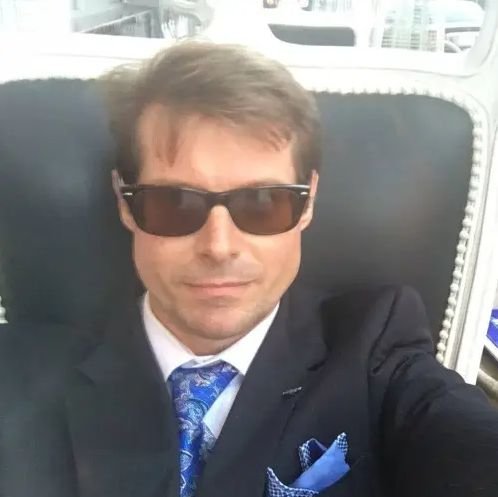
Carl Prine is a former senior editor at Coffee or Die Magazine. He has worked at Navy Times, The San Diego Union-Tribune, and Pittsburgh Tribune-Review. He served in the Marine Corps and the Pennsylvania Army National Guard. His awards include the Joseph Galloway Award for Distinguished Reporting on the military, a first prize from Investigative Reporters & Editors, and the Combat Infantryman Badge.
BRCC and Bad Moon Print Press team up for an exclusive, limited-edition T-shirt design!
BRCC partners with Team Room Design for an exclusive T-shirt release!
Thirty Seconds Out has partnered with BRCC for an exclusive shirt design invoking the God of Winter.
Lucas O'Hara of Grizzly Forge has teamed up with BRCC for a badass, exclusive Shirt Club T-shirt design featuring his most popular knife and tiomahawk.
Coffee or Die sits down with one of the graphic designers behind Black Rifle Coffee's signature look and vibe.
Biden will award the Medal of Honor to a Vietnam War Army helicopter pilot who risked his life to save a reconnaissance team from almost certain death.
Ever wonder how much Jack Mandaville would f*ck sh*t up if he went back in time? The American Revolution didn't even see him coming.
A nearly 200-year-old West Point time capsule that at first appeared to yield little more than dust contains hidden treasure, the US Military Academy said.












